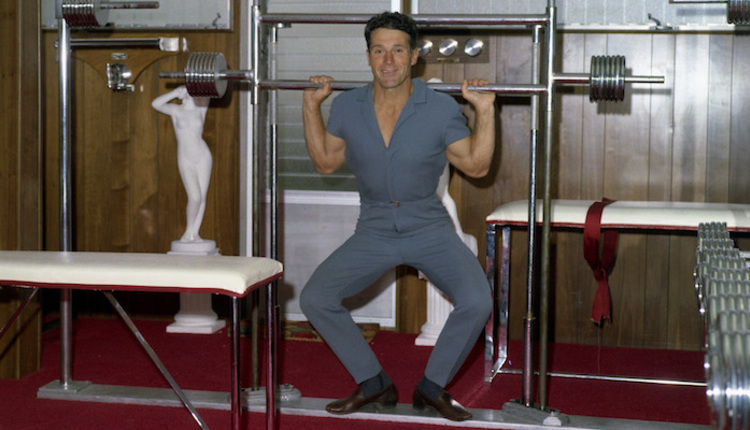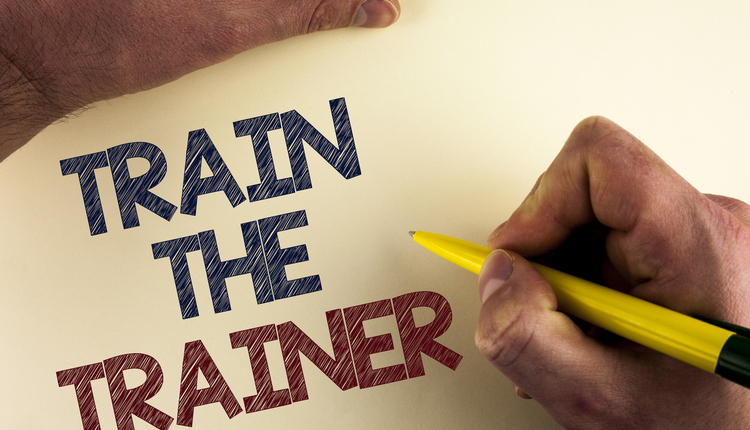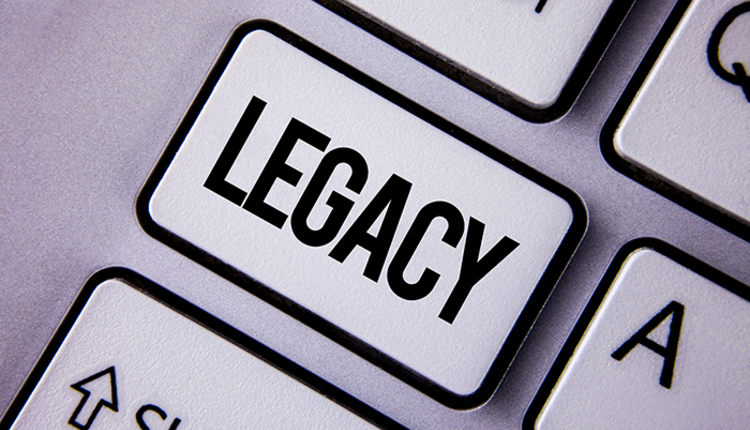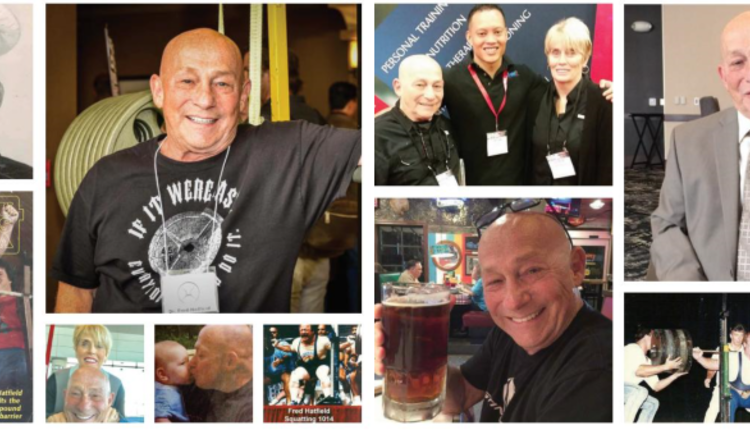Long ago in Italy, it was an unusually hot summer's day. It was so hot, in fact, that it caused all the citizens of Florencegreat suffering, yet there were two men that seemed to suffer more than anyone. They were two laborers, working to construct what would become a magnificent church building that was intended to be so magnificent that it would inspire anyone who looked upon it.
But on this day, the two laborers were engaged in work that most would consider anything but inspiring. They were cutting stones into perfectly rectangular bricks that were to be used in the construction of the church. It was intensely grueling and tedious work. The men were a pathetic sight: They were hunched over on their knees with every muscle strained and their faces reddened from the difficulty and tedious nature of the task. As they worked out in the blazing sun, the sweat poured off of them onto the steaming hot ground
Walking through the courtyard at that precise moment was a priest. As he observed the two men, he became curious as to the nature of their work that obviously demanded so much of them. He approached the first stone cutter, placed his hand on his shoulder and asked, "What are you doing, my son?" The man's face was downtrodden, and he didn't even look up at the priest. He just murmured under his breath, "I'm cutting stone."
The priest could see that much for himself; somewhat discouraged, he turned to the other stone cutter and asked, "My son, can you tell me what you're doing?" The man looked up at the priest with his eyes seeming to glow. He rose to his feet, pointed to a pile of stacked bricks and passionately declared, "Why, can't you see? I'm building a magnificent cathedral!"
Here are two men engaged the same arduous labor, day after day. One is a mere stone cutter, the other a magnificent cathedral builder, and the only point of differentiation between the two is vision. One sees only what is, the other what is possible.
If we desire to go beyond making a living to making a difference, we need to decide in certain terms the purpose of our work and how we can fulfill it daily. If we are to leave a legacy tomorrow, we must live a legacy today because what we do daily is indicative of who we become permanently.
There are six elements that are essential in creating the mindset and actions that are in correspondence with leaving a legacy reflective of who we are:
1. Intention
2. Passion
3. Commitment
4. Strategy
5. Persistence
6. Belief
Intention
Intention starts with absolute clarity of purpose. The greater your clarity, the more focused your attention. Whatever you focus your attention on in life magnifies; whatever you direct your attention away from diminishes. For this reason, it's imperative that you properly focus your attention by knowing exactly what you want to accomplish. You must first get creative.
When you were a child and someone asked you what you wanted to be when you grew up, what did you say? You probably talked enthusiastically about being an astronaut, president, an artist, and so forth. However, as you grew older, the adults around you either explicitly or implicitly conditioned you to lower your aspirations. You were told things such as "be realistic," "that's only one in a million," "that's impossible" or "you need to get a real job." What would have happened if every superstar actor, gifted musician, self-made millionaire or world leader would have taken that advice?
Checklist:
ü Write down a minimum of 50 goals that you wish to achieve. While writing your goals, remember to think idealistically rather than realistically. Focus on implementation later. Get as creative and ambitious as you can. Do you desire to be a renowned author? International speaker? What charities do you want to start or support? What areas of training do wish to master? In what ways do you wish to be renowned in the fitness industry? When setting a goal, it helps to first write down two or three things you have already accomplished in your life that you're most proud of. That creates the psychological evidence that there have been things in your life you have desired, pursued and attained. This means that you possess the innate ability to bring into your life the things that you desire, if you can clearly identify them.
ü Pick those you are going to accomplish in one year, five years or 10 years. Write either the number 1, 5 or 10 next to each goal, indicating when you are going to achieve it. Once you have identified timelines, determine all of the goals you desire to accomplish within one year. Who you are and where you are in five years is a result of the decisions you make or don't make every day, month and year.
ü Select the three that are most important to you. If you could only achieve one of the one-year goals you've set for yourself, which one would you choose and why?
ü Make a list of a minimum of 10 actions you will need to take. Imagine that it's one year from now and your goal is already achieved. Work backwards, and think about how you implemented the action steps in order to get there. Which of those steps did you implement over the course of this year, month and week?
ü Write down two to five major obstacles that you foresee occurring while you are in the process of achieving your one-year goal. For each obstacle, write down three responses for each. Murphy's law states, "Whatever can go wrong will go wrong, and it will be the worst possible thing at the worst possible time." Often, you will not be able to predict what will go wrong or what responses will be correct. Do not become discouraged when you encounter obstacles. In reality, obstacles are an inevitable and essential part of the goal achievement process. The more prepared you are, the more you minimize the occurrence of setbacks and obstacles. In addition, proper preparation can help you to quickly and effectively respond when obstacles occur.
ü Lastly, what action can you take immediately (before the end of the day) in order to start moving in the direction of your yearly goal?
A great month is the result of having four great consecutive weeks. A great week is the sum of seven great days. Each night before you go to bed, write down exactly what tasks you need to complete the next day in order to accomplish your primary objective that day or week. By clearly identifying the things that matter most on a daily basis and working on those things, you decrease the risk of squandering time on activities that distract you from manifesting the greatest positive consequences in your life.
Passion
Without this element, clarity is irrelevant. Many people know someone who is technically competent yet cannot get himself to take action. Anything that is meaningful will require sacrifice, overcoming disappointment, endurance, ingenuity and inspiration. Without an intensely internalized and motivating reason why you desire your goal, it is unlikely that you or anyone can accomplish anything of great significance. Conversely, with great purpose comes great accomplishment. Anyone who has ever achieved anything that was seemingly impossible did it through intense desire.
Thomas Edison failed to create the light bulb after 11,000 attempts. If the invention was of no consequence to him, how many attempts do you think he would have made? Necessity is the mother of all invention. When you come to the realization why your goal is an absolute necessity for your life, you are close to being unstoppable.
Checklist:
ü Write two to three reasons why you intensely desire the achievement of your goal(s). What is so important about its achievement that it's an absolute necessity?
ü If you achieve your goal(s), what are three ways in which your life will be more meaningful, better or less painful?
ü The fear of loss for many individuals is an even greater motivator than the desire for gain. Write down three reasons why your life will lack meaning or in what ways you will experience intense emotional pain if you do not achieve your goal.
Commitment
Passion is an essential element of success because it inspires action. Action is the precursor to all effects in your life. You cannot achieve something unless you are first willing to do something. Below, you will write your personal declaration. This includes what you will give on a daily basis (encouragement, coaching, training, etc.) and to whom (family, friends, clients, employees, etc.) in order to yield the value required to achieve your goal. In order to achieve something, you must become something.
Checklist:
ü What do you desire to become?
ü What commitments will that take (training, courses, skills, etc.)? What are the habits that you are committed to developing in order to accomplish your goals (e.g. waking up 30 minutes earlier every morning to study subject matter)?
ü What are three commitments that you will make immediately in order to achieve the goal(s) you most intensely desire?
Strategy
A strategy is a plan that allows you to systematically assign your mental, physical, emotional and capital resources toward a clearly defined outcome. The clearer your pre-determined outcome, the better your plan will serve to determine whether or not a particular course of action is moving you closer to your goal. This can save you an exhaustive degree of effort, time, frustration and money. A S.W.O.T. analysis helps you to design a plan based on the identification of your Strengths, Weaknesses, Opportunities and Threats.
Checklist:
Strengths
ü What are your areas of excellence in the training you offer?
ü What is your point of differentiation/distinction? How are you perceived by students or participants?
ü What is the key reason your clients would want to train with you?
Weaknesses
ü What past experiences with a client did not go well?
ü What areas of performance are you not confident in?
ü What skills have you not upgraded or refined within the past six months?
ü What are two things you can do in order to change situations like this in the future?
Opportunities
ü What unique areas of specialization can you use to your advantage?
ü What unique trends do you believe will benefit your clients and company?
ü Who is or will be your target market?
ü What are their greatest areas of pain and frustration?
ü What do they desire most? Why?
Threats
ü Where are you unable to meet your client's needs?
ü What are some emerging needs in your industry that you are not currently prepared to meet?
ü Where might you or your company be taking customers for granted that other companies could capitalize on?
Persistence
In today's world, the only constant is change. Despite the need for innovation and continual re-invention, there are aspects of our life and work that do not change. Another constant that we can depend on is the need to continually grow, learn and improve throughout our lives. Our industry is becoming increasingly more competitive every year. Whatever made you successful yesterday will not necessarily ensure your success tomorrow. In fact, it may be irrelevant.You must remain flexible and emotionally unattached to your methodology. Without this attitude of detachment, continual growth becomes increasingly improbable. The paradox is that while you must remain flexible in your methodology, you must be rigid and persistent in the development of timeless skills and character traits that are indispensable to your professional development. Remember: It's not what you achieve that's the major benefit of a tenacious goal but who you become in pursuit of it that matters most to your success in the long term.
Checklist:
ü What are two skills that, if you were to develop mastery in, would create the greatest, most enduring benefits to your career?
ü What are three character traits that are congruent with who you desire to become that you are willing to develop over the course of your life?
ü What you do in your life is largely based on your self-concept or how you see yourself in a given area. By recognizing yourself as someone who possesses persistence, you are more likely to demonstrate that attribute in other areas of your life. Write down one or two times in your life where you were met with setbacks and disappointment but persisted regardless.
Belief
Our beliefs determine our interpretation and response to everything that happens to us in life. Therefore, beliefs are powerful determinants of the outcomes we produce or fail to produce. Some beliefs serve us, and others limit us. Fortunately, our beliefs are not innate; they are learned. If they can be learned, they can be unlearned.
List a few beliefs that you have that can rob you of success. These beliefs may have stopped you from totally committing to a goal in the past or even stopped you from attempting anything at all. These beliefs may include internalized statements such as:
· I'm not an entrepreneur.
· I don't have a degree, so I can't…
· It takes money to make money.
· I'm just not creative.
· I'm not the brightest.
· I don't have any luck.
· I'm a born loser.
· I was never good at…
· And all sorts of other beliefs that we have been told or told ourselves about why something might be possible for others but somehow not possible for us.
Checklist:
ü Make a list of three disempowering beliefs you possess that have stopped you from getting what you want in the past.
ü List two major ways these beliefs have hurt you in the past.
ü Write down two ways these beliefs can damage your life in the future. What are the most painful consequences these beliefs can create for you in future, if you continue to hold on to them?
ü Write down one or two exceptions to each belief. For example, I commonly hear people tell me I have a bad memory and can't learn anything! I then ask them to recall a time in their adult life when they learned something. It could be a new telephone number, a new route to a friend's house, the words to a new favorite song, etc. By challenging the belief, you're giving your brain evidence that your belief is not universally true. In fact, beliefs are often irrational; people learn things every day. Can you imagine what an individual's life would be like if they acted out of the belief that they can't learn anything? Strangely enough, out of fear, self-doubt and lack of self-esteem, many people do. Whatever you say to yourself with enough frequency and intensity you eventually come to believe. This is called auto-suggestion.
ü What are three to five new beliefs stated in present-tense affirmations that you could choose to adapt (e.g. "I am learning new skills that make me highly valuable to my clients"; "I am an extraordinarily effective communicator"; "I am highly creative in my life and work"; "I learn and create with extraordinary speed and effectiveness")?
ü In order for empowering beliefs to have a tangible effect in your life, they must be acted upon. The scriptures say that "faith without works is dead." What can you start doing differently today in harmony with you new beliefs?
The most profound effect on that our beliefs have on our lives is the creation of habits. What we believe affects what we do, and what we do effects that we get. Many people fail to zealously guard their thoughts and habits because they do not experience an immediate, awe-inspiring benefit. The effects may at first be subtle, but it's essential to persist. The formation of one destructive habit cultivated over time may be enough to hold you back from achieving all you are capable of in your life.
Our lives are the result of a decision. If you resign yourself to never accept anything less from yourself that the highest limits of your personal potential, not only do you exponentially raise the odds of you achieving what you desire to achieve but you also enhance the possibility of becoming everything you have the potential to be.
Robert Cappuccio has been a personal trainer, fitness manager, membership sales consultant, Area Director, Corporate Training and Development Director and Director of Professional Development for the NASM. Robert's passion is to help people create a more empowering self-perception by exercising their ability to affect change in their life through health and fitness. Robert's articles have appeared in various fitness publications; he was featured in numerous trainer development videos and was contributing author of two textbooks. He has been invited to speak at leading industry conferences and is highly sought after by the most recognized health club chains in the world. He can be reached at robertjcappuccio@yahoo.com.














